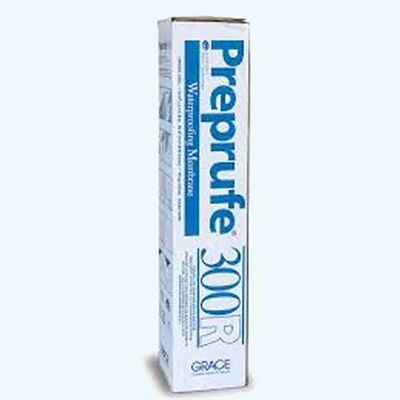Description
GCP Applied Technologies (“GCP”) PREPRUFE® 300R & 160R Membranes are unique composite sheets comprised of a thick HDPE film, pressure sensitive adhesive, and weather resistant protective coating. Designed with Advanced Bond Technology™ PREPRUFE® 300R & 160R Membranes form a unique, integral bond to poured concrete. This integral bond is specifically designed to provide a robust barrier to water, moisture and gas and to prevent both the ingress and lateral migration of water. Selvedge overlaps and deliver superior performance in harsh conditions without the need for specialised equipment, heat or power.
